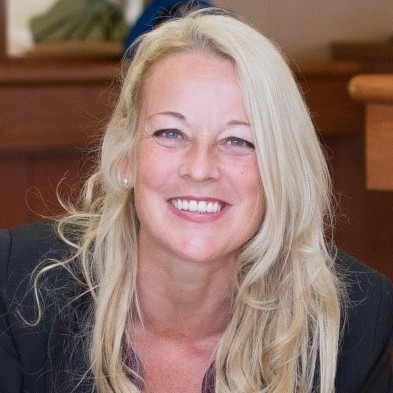As champions of lifelong learning, polytechnic institutions develop innovative and industry-responsive upskilling and reskilling programs, preparing learners to re-enter the workforce or start new careers. This kind of focused, career-oriented training is a great way to address labour shortages and skills gaps in the Canadian economy.
Polytechnics Canada recently connected with Dr. Veronique Boscart, who at the time of publication, was the Executive Dean of the School of Health and Life Sciences at Conestoga College, and Michelle Heyer, Chair of Seniors Care at Conestoga. They told us about the Canadian Remote Access for Dementia Learning Experiences+ (CRADLE+) program, an online dementia care training program spearheaded by the Canadian Institute for Seniors Care at Conestoga. Available in multiple languages, this free training explores evidence-informed, person-centred approaches to supporting people living with dementia.
Polytechnics Canada: What was the catalyst for CRADLE+?
Veronique Boscart: There were two key driving forces. Firstly, Canada’s population of older adults is growing and becoming more medically complex. More than one-third of seniors live with two or more chronic conditions and the prevalence of dementia is expected to almost double by 2030. By 2050, more than 1.7 million Canadians are expected to be living with dementia, with an average of 685 people diagnosed each day. The second factor was a shortage of care providers like personal support workers who are skilled in dementia care. With very few targeted education opportunities, this was a bad situation about to become critical. In response and with funding from the Government of Canada’s Future Skills Centre, CRADLE+ was created to develop and deliver a free, online course on dementia care in multiple languages for up to 50,000 unregulated care providers across the country.
PC: How does the program work? How is it different from more traditional courses in this area?
Michelle Heyer: CRADLE+ uses a tested pedagogical framework known as the Applied Simulated and Integrated Learning Approach (ASILA). It is different from other courses in that it uses clinical and adult learning principles to help care providers identify, navigate and support care opportunities. Learners are presented with a care scenario, are walked through best practices using rich media and interactive features, and are encouraged to reflect on and apply their learning to reinforce evidence-informed, person-centred dementia care. CRADLE+’s asynchronous design and availability online allows users to review the content independently or as part of a group, all at once or at their own pace, at their place of work or at home.
PC: How are industry connections and experiential learning opportunities integrated into programming?
VB: Course content was developed after meeting with a wide range of stakeholders to identify priority areas for learning. For example, supporting LGBTQ2S+ community members who live with dementia, or those offering dementia care in rural and remote communities. By consulting with teaching and subject-matter experts, we developed modules that share the stories of seniors living with dementia and teach practical approaches to real-life care scenarios.
MH: In one module, learners see how Jack – a former firefighter from Ireland – can live independently in the community with support from his care team. The module allows participants to explore how we communities and services can be more inclusive.
VB: The benefit of case-based education like CRADLE+ is that it provides learners with opportunities to apply knowledge and receive immediate feedback in a low-risk situation. It increases their confidence in their skills and promotes the application of their learning to practice. A discussion forum included in the course also gives registrants an opportunity to connect, share their expertise and learn from each other.
PC: What has been the response from learners and employers?
MH: To help evaluate CRADLE+, we embedded voluntary surveys at the beginning and end of the online course. We also send voluntary surveys to learners three- and six-months post-completion. These surveys tell us CRADLE+ is a highly satisfactory educational resource that significantly improves knowledge of dementia care. The surveys also revealed that more than half of participants were not receiving educational support through their current employer, reinforcing the need for programs like this one.
VB: Employers share the positive perception of CRADLE+. Administrators of community, home, retirement and long-term care organizations from across the country have committed to sharing CRADLE+ with their staff and asked staff to submit the certificate to them upon course completion. To date, more than 16,000 people have registered for CRADLE+.
Note: The English version of the expanded CRADLE+ course is available for free, and the French, Mandarin, Tagalog, Cree and Ojibwe versions of CRADLE+ will be released in the 2023. Individuals can register for the original CRADLE course in French, Mandarin and Tagalog free of charge in the meantime.


